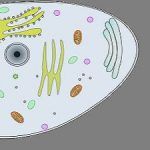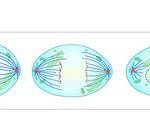The First Law of the Thermodynamics is related to the conservation of energy, while the Second Law of Thermodynamics argue that some of the thermodynamics processes are impermissible and does not entirely follow the First Law of Thermodynamics. The word 'thermodynamics' is derived from the Greek words, where "Thermo" means heat and "dynamics" means power. So thermodynamics … [Read more...] about Difference Between First and Second Law of Thermodynamics
Science
Difference Between Mixtures and Compounds
Compounds and mixtures are two important categories of matter. The mixtures, on one side, are formed by the physical mixing of one or more than one substances. Whereas the compounds are produced by chemical interaction at the molecular level. There is a proper chemical bonding between two or more elements at the time of compound formation. But no such thing occurs in the … [Read more...] about Difference Between Mixtures and Compounds
Difference Between Smooth and Rough Endoplasmic Reticulum
The difference lies between the two is that the Smooth Endoplasmic Reticulum is not bounded by the ribosomes and is known for storing the lipids and proteins. Meanwhile, the Rough Endoplasmic Reticulum is bounded by the ribosomes and store proteins. The another most essential component of the eukaryotic cell is the Endoplasmic Reticulum or ER. It occupies almost 10 percent … [Read more...] about Difference Between Smooth and Rough Endoplasmic Reticulum
Difference Between Piles, Fissures and Fistula
Piles or Hemorrhoids are the swollen veins in the lower part of the anal canal or anus, these are painless. Fissures are very painful, as they are caused due to the tear or cut in the skin near the anus. The fistula is the small opening develops in the skin around the anus, this opening has pus inside it. Most people do not know the exact difference between the three, as … [Read more...] about Difference Between Piles, Fissures and Fistula
Difference Between Mitosis and Meiosis
Mitosis has the diploid number of chromosomes and produces two identical daughter cells with 46 chromosomes, on the contrary in Meiosis four genetically distinct daughter cells with each having 23 chromosomes in the human cells are produced which have the haploid number of chromosomes. Secondly, Mitosis occurs in Somatic cells while Meiosis happens in Sex cells or Gametic … [Read more...] about Difference Between Mitosis and Meiosis





